
Patients are being monitored and treated at Phuoc Son District Medical Center. Photo: Contributor
Phuoc Son District Medical Center, Quang Nam Province said that the unit is currently treating two patients who were poisoned after eating pickled fish.
It is known that at noon on March 28, Phuoc Son District Medical Center received patient Ho Thanh D. (13 years old, residing in Phuoc Chanh Commune) and Ms. Y Ng. (40 years old, residing in Phuoc Xuan Commune, both in Phuoc Son District) for emergency treatment in a state of vomiting and dizziness after eating pickled fish. Up to now, the health of the two patients has basically stabilized. Both patients were diagnosed with stomach poisoning, and there are currently no signs related to Botulinum toxin.
Mr. Mai Van Muoi, Director of the Department of Health of Quang Nam province, said that on the afternoon of March 29, a working group of the Pasteur Institute of Nha Trang coordinated with the Department of Food Safety and Hygiene, the Department of Health of Quang Nam province to trace and collect samples of pickled salted fish in the mountainous district of Phuoc Son - a locality where 10 people were previously poisoned after eating pickled salted carp to investigate, monitor and handle the source of the poison.
As reported by Van Hoa , from March 7-16, in the mountainous district of Phuoc Son, Quang Nam province, there were two consecutive cases of food poisoning after eating pickled carp, causing one death and nine people with serious symptoms requiring emergency hospitalization.
The first incident occurred on the morning of March 7, with 11 people attending a meal after a buffalo stabbing ceremony organized by the family of Ms. Ho Thi N. (55 years old, residing in Phuoc Duc commune, Phuoc Son district). After the meal, in the afternoon of the same day, 4 people were taken to the emergency room at Phuoc Son District Medical Center in a state of headache, fatigue, nausea, numbness in limbs, difficulty breathing, blurred vision, etc. Afterwards, the patients were transferred to the Northern Mountainous Region General Hospital of Quang Nam for further treatment. All 4 patients ate pickled carp at the party. On March 13, one of the 4 patients with food poisoning died.
Then, at noon on March 16, 5 people had lunch at Mr. HVĐ’s house (Phuoc Kim commune, Phuoc Son district). By the afternoon of March 17, these people were poisoned and were taken to Phuoc Son District Medical Center with symptoms of headache, sore throat, fatigue, nausea, etc.
In addition, during this time, the hospital recorded another case residing in village 2, Phuoc Duc commune, Phuoc Son district, although not having the same meal as the above cases, he ate pickled carp that his family made.
Currently, after receiving Botulinum antitoxin support from Cho Ray Hospital ( Ho Chi Minh City), the health of the 3 most severely poisoned patients has improved positively and they have been removed from ventilators. The health of the remaining patients is progressing well.
The Department of Food Safety and Hygiene of Quang Nam province has coordinated with units to investigate the cause and survey related factors to find the source of infection, taking samples to send to the Pasteur Institute in Nha Trang and the National Institute for Food Safety and Hygiene Control.
Through consultation and testing, it was confirmed that these patients were all food poisoned by eating fermented carp, positive for Clostridium botulinum type E bacteria.
It is known that pickled fish is a traditional dish of local ethnic people, made by families from carp, salt, rice or cornstarch, chili, then kept in a sealed jar for about a week before being eaten.
Along with finding the cause, the Quang Nam Health Department recommends that localities increase information dissemination to people about food safety knowledge to raise awareness, change behaviors and habits that do not ensure food safety in choosing, preserving, processing and using food.
Clostridium botulinum toxin is a gram-positive, rod-shaped, anaerobic, spore-forming, motile bacterium capable of producing botulinum neurotoxins. The bacterium occurs naturally or synthetically, with a lethal dose of 1.3-2.1 nanog/kg in humans. Notably, the bacterium can survive in foods such as opened canned goods, meat, milk, smoked fish, etc. for many weeks under refrigerated storage conditions.
Botulinum toxin is very toxic. People infected with this toxin may experience acute gastroenteritis syndrome (abdominal pain, fever) or neurotoxic syndrome with symptoms such as flaccid paralysis, rapid progression, severe impact on health, prolonged and possibly fatal.
THU HOAI
Source








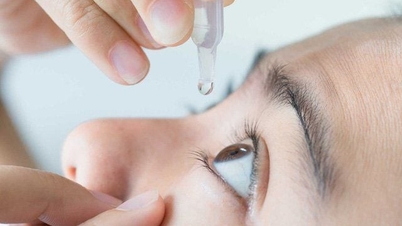



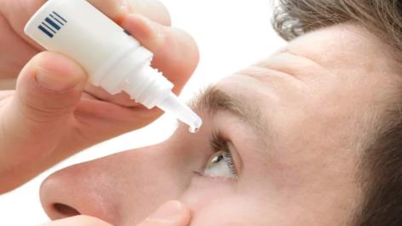

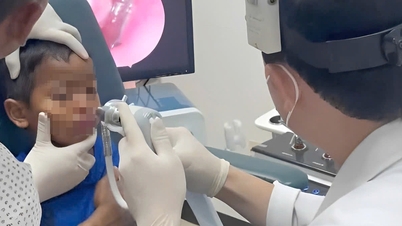
































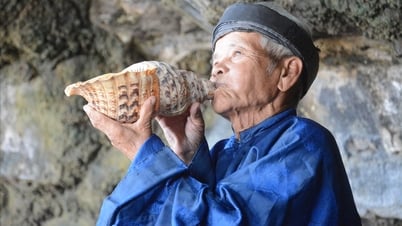









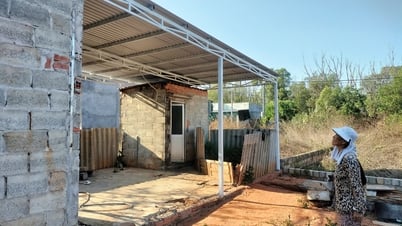


















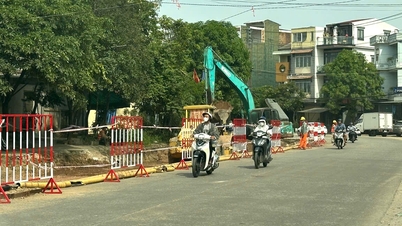

















Comment (0)